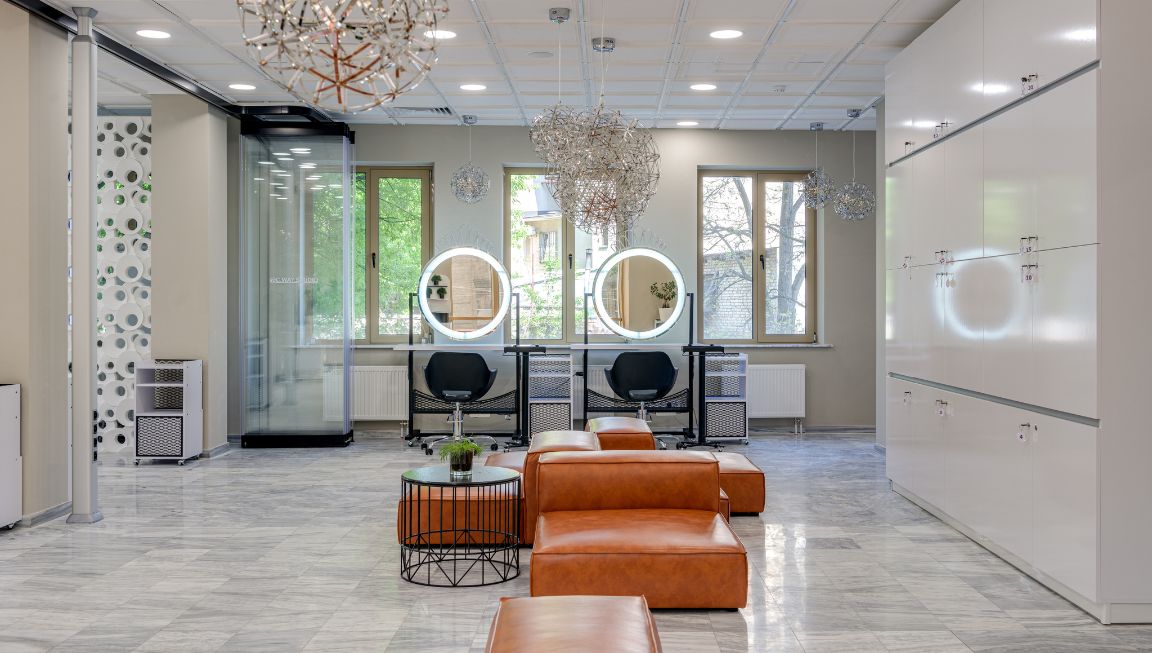Selecting the right flooring for a commercial space is like choosing the foundation for a successful business – it needs to perfectly balance durability, aesthetics, and practicality. Whether you’re renovating an office, retail store, or industrial facility, the flooring you choose will impact everything from maintenance costs to employee comfort and customer impressions.
- Key Factors in Commercial Flooring Selection
- Commercial Vinyl Flooring Solutions
- Commercial Carpet Options
- Polished Concrete Flooring
- Epoxy Flooring Systems
- Natural Stone and Tile
- Hardwood and Engineered Wood
- Rubber Flooring
- Sustainable Flooring Options
- Installation and Maintenance Considerations
- Cost Analysis and ROI
- Industry-Specific Recommendations
- Frequently Asked Questions
- Conclusion
Key Factors in Commercial Flooring Selection
Before diving into specific materials, let’s consider the crucial factors that should guide your decision:
Foot Traffic Volume The number of people walking through your space daily will significantly impact your flooring choice. High-traffic areas need extremely durable solutions that won’t show wear patterns quickly.
Maintenance Requirements Consider how much time and money you’re willing to invest in floor maintenance. Some materials require regular professional cleaning, while others need minimal upkeep.
Safety Considerations Slip resistance and fire ratings are paramount in commercial spaces. Your flooring must meet local building codes and safety regulations.
The article will explore each flooring type in detail, discussing pros and cons, ideal applications, and practical considerations. I’ll include specific installation tips, maintenance requirements, and cost comparisons.
Commercial Vinyl Flooring Solutions
When it comes to versatility in commercial spaces, vinyl flooring stands out like a Swiss Army knife in your toolbox. Modern vinyl options have come a long way from their humble beginnings, now offering remarkable durability and style.
Luxury Vinyl Tile (LVT)
- Exceptional durability for high-traffic areas
- Wide range of designs, including wood and stone looks
- Easy maintenance and water resistance
- Cost-effective long-term solution
Sheet Vinyl Perfect for healthcare facilities and clean rooms, sheet vinyl provides seamless installation that prevents bacterial growth and makes cleaning a breeze. Think of it as a protective shield for your floor that also happens to look great.
Commercial Carpet Options
In office environments and hospitality spaces, carpet continues to reign supreme for several compelling reasons:
Carpet Tiles
- Modular design allows for easy replacement of damaged sections
- Excellent acoustic properties for noise reduction
- Available in patterns that hide soil and wear
- Simple installation and maintenance
Broadloom Carpet The traditional wall-to-wall carpet option still holds its ground, especially in:
- Conference rooms
- Hotels
- High-end office spaces
- Areas where a luxurious feel is paramount
Polished Concrete Flooring
Think of polished concrete as the industrial-chic superstar of commercial flooring. It’s transformed from a purely utilitarian option to a designer’s favorite, offering:
Benefits
- Extremely long lifespan
- Minimal maintenance requirements
- Excellent light reflectivity
- Superior durability against heavy equipment
Applications
- Retail spaces
- Warehouses
- Modern offices
- Art galleries
Epoxy Flooring Systems
Characteristics
- Seamless surface
- Chemical resistance
- Customizable designs
- High durability
Perfect for:
- Laboratories
- Industrial facilities
- Commercial kitchens
- Auto showrooms
Natural Stone and Tile
For businesses looking to make a lasting impression, natural stone and tile flooring offer unmatched elegance:
Popular Options
- Granite
- Marble
- Porcelain tile
- Ceramic tile
Best Uses
- Hotel lobbies
- Upscale retail
- Restaurant dining areas
- Corporate headquarters
Hardwood and Engineered Wood
While traditionally associated with residential spaces, wood flooring can add warmth and sophistication to commercial environments:
Key Considerations
- Traffic patterns
- Moisture exposure
- Maintenance requirements
- Installation method
Rubber Flooring
Ideal Applications
- Gyms and fitness centers
- Healthcare facilities
- Schools
- Play areas
Benefits
- Impact absorption
- Noise reduction
- Slip resistance
- Comfort underfoot
Sustainable Flooring Options
Today’s environmentally conscious businesses are increasingly choosing green flooring solutions:
Popular Eco-Friendly Options
- Bamboo flooring
- Cork
- Recycled rubber
- Bio-based tiles
Installation and Maintenance Considerations
Professional Installation
- Proper subfloor preparation
- Moisture testing
- Temperature acclimation
- Expert finishing
Maintenance Programs
- Daily cleaning protocols
- Periodic deep cleaning
- Preventive maintenance
- Repair procedures
Cost Analysis and ROI
Initial Costs vs. Long-term Value
- Installation expenses
- Maintenance requirements
- Expected lifespan
- Replacement costs
Industry-Specific Recommendations
Healthcare
- Antimicrobial properties
- Seamless installation
- Chemical resistance
- Easy cleaning
Retail
- Aesthetic appeal
- Durability
- Easy maintenance
- Cost-effectiveness
Industrial
- Impact resistance
- Chemical resistance
- Safety features
- Load-bearing capacity
Frequently Asked Questions
- How long should commercial flooring last? Commercial flooring lifespan varies by material and usage, but typically ranges from 5-20 years. Proper maintenance can extend this significantly.
- What is the most durable type of commercial flooring? Polished concrete and epoxy systems typically offer the highest durability, followed closely by high-grade commercial vinyl and rubber flooring.
- How do I maintain commercial flooring in high-traffic areas? Regular cleaning, prompt attention to spills, use of entrance mats, and following manufacturer-recommended maintenance schedules are essential.
- What’s the most cost-effective commercial flooring option? Vinyl flooring often provides the best value when considering initial cost, durability, and maintenance requirements.
- Should I choose different flooring for different areas of my commercial space? Yes, it’s often beneficial to select different flooring types based on each area’s specific requirements for durability, maintenance, and aesthetics.
Conclusion
Choosing the right commercial flooring is a crucial decision that impacts your business’s functionality, aesthetics, and bottom line. Consider your specific needs in terms of durability, maintenance, and appearance, while keeping in mind your budget and long-term goals. Remember that investing in quality flooring and proper installation often pays dividends through reduced maintenance costs and longer lifespan. By carefully evaluating your options and working with experienced professionals, you can select flooring that serves your business well for years to come.



